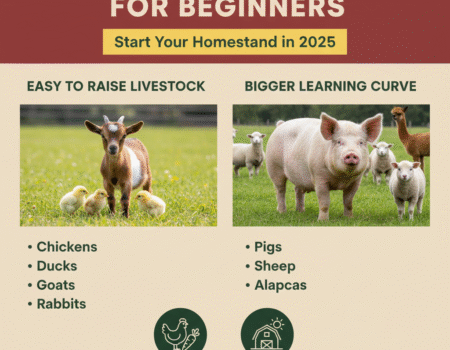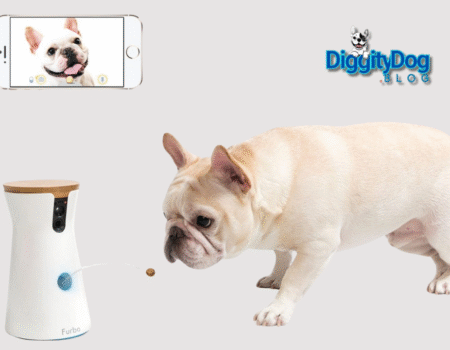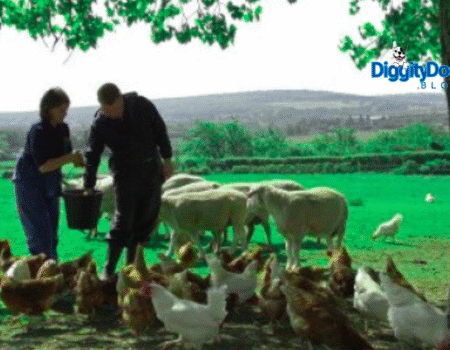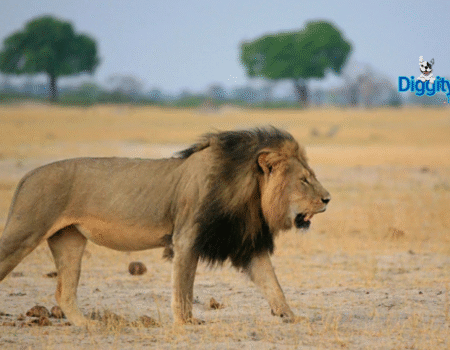Are you wondering how to keep your Golden Retriever puppy fit and healthy? We all want our furry friends to grow strong and live their best lives. But finding the right balance between exercise and rest can be a challenge. So, what are the best exercises for Golden Retriever puppies? And how can you establish a puppy exercise routine that promotes their healthy growth?
In this article, we will explore the world of Golden Retriever puppy exercises and provide you with valuable guidance to ensure your pup’s well-being. From off-leash strolls to leash walking and fun playtime, we will cover it all. Plus, we’ll delve into the importance of socialization and mental stimulation for a well-rounded exercise routine.
Get ready to discover the secrets to keeping your Golden Retriever puppy happy, healthy, and full of energy!
Key Takeaways:
- Exercise is crucial for the healthy growth of Golden Retriever puppies.
- Off-leash strolls, leash walking, and playtime are essential exercises for your puppy.
- Gradually increase the duration and intensity of exercise as your puppy grows.
- Socialization and mental stimulation are key components of a well-rounded exercise routine.
- Consult with a veterinarian for personalized exercise recommendations for your Golden Retriever puppy.
Off-Leash Strolls for Golden Retriever Puppies
When it comes to exercising your Golden Retriever puppy, off-leash strolls can be a great way to provide both physical and mental stimulation. These outdoor exercises allow your puppy to explore their surroundings, burn off energy, and engage their senses.
During off-leash strolls, it is important to ensure the safety of your puppy. Find a secure, fenced area or choose a location away from any potential dangers, such as busy roads or bodies of water.
To start off, let your puppy set the pace. Allow them to sniff, explore, and take breaks when needed. Remember, they are still growing and developing, so it’s essential to avoid overexertion.
“Off-leash strolls are a fantastic opportunity for puppies to learn about their environment, improve their coordination, and build confidence,” says Dr. Sarah Thompson, a veterinarian specializing in canine behavior.
Here are some guidelines to follow when incorporating off-leash strolls into your puppy’s exercise routine:
- Start with short strolls of around 10-15 minutes for an 8-week-old puppy.
- Gradually increase the duration of each stroll as your puppy grows, adding a few extra minutes each week.
- Observe your puppy’s behavior during the strolls. If they appear tired or start lagging behind, it’s time for a break.
- Consider bringing along some treats or toys to make the strolls even more enjoyable for your puppy.
“Off-leash strolls provide not just physical exercise but also mental stimulation for your puppy. The sights, sounds, and smells of the outdoors enrich their sensory experiences,” adds Dr. Thompson.
Remember, off-leash strolls are a time for exploration and bonding with your puppy. So, embrace the opportunity to share these moments together while allowing them to indulge in the joys of the great outdoors.
Leash Walking for Golden Retriever Puppies
Leash walking is an excellent physical activity for golden retriever puppies, as it allows them to explore their surroundings while also providing crucial obedience training. Before starting leash walks, it’s important to train and socialize your puppy to ensure they are comfortable with the leash and walking alongside you.
During leash walks, it’s essential to maintain control and prevent your puppy from pulling or lunging. Use a sturdy leash and collar or harness that fits properly and does not cause discomfort. This will ensure a safe and enjoyable experience for both you and your puppy.
When starting leash walks with an 8-week-old golden retriever puppy, begin with shorter walks of around 15 minutes. As your puppy grows and develops, gradually increase the duration to about 30 minutes for a 6-month-old puppy.
Remember to be attentive to your puppy’s needs during leash walks. While puppies have lots of energy, they may tire more quickly than adult dogs. Watch for signs of tiredness such as lagging behind or slowing down, and adjust the pace accordingly.
Breaking up leash walks with training sessions or off-leash playtime can also be beneficial. This helps keep your puppy engaged and mentally stimulated while still receiving physical exercise.
Tips for a successful leash walk with your golden retriever puppy:
- Use positive reinforcement techniques, such as treats and praise, to encourage good leash manners.
- Keep your puppy close to you on the leash, using gentle corrections if necessary.
- Allow your puppy to explore and sniff their surroundings within safe limits.
- Choose a quiet and familiar area for leash walks to minimize distractions and potential hazards.
Leash walking not only provides physical exercise for your golden retriever puppy but also helps reinforce good behavior and strengthens the bond between you. Remember to respect your puppy’s limits and make the experience enjoyable for both of you.
Benefits of Leash Walking for Golden Retriever Puppies
| Benefits | Description |
|---|---|
| Physical Exercise | Leash walking allows puppies to burn off energy and build muscle strength. |
| Obedience Training | Leash walks offer opportunities to reinforce leash manners and basic commands. |
| Mental Stimulation | Exploring new environments during leash walks engages a puppy’s senses and provides mental stimulation. |
| Socialization | Leash walks provide controlled interactions with other people and dogs, promoting social skills. |
| Bonding Time | Leash walks create shared experiences and strengthen the bond between puppy and owner. |
Playtime with Your Golden Retriever Puppy
Playing with your puppy is not only a form of exercise but also a bonding experience. It’s a great way to strengthen the connection between you and your furry friend while providing physical and mental stimulation. Engaging in fun activities with your golden retriever pup can contribute to their overall growth and well-being.
- Fetch: Playing a game of fetch is an excellent way to keep your puppy active. Throw a toy or a ball, and encourage your pup to retrieve it and bring it back to you. This activity not only stimulates their physical energy but also engages their natural retrieving instincts.
- Tug-of-War: Tug-of-war is a great game to build strength and provide mental stimulation for your puppy. Use a sturdy rope or a tug toy and engage in a gentle game of tug. Remember to teach your puppy an “off switch” command to ensure they understand when the game is over.
- Hide-and-Seek: Hide-and-seek is an enjoyable game that stimulates your puppy’s mind. Hide treats or toys around the house and encourage your puppy to find them. This game satisfies their natural curiosity and helps develop their problem-solving skills.
- Obstacle Course: Set up a simple obstacle course in your backyard or living space using household items such as boxes, cones, or tunnels. Guide your puppy through the course, encouraging them to climb, crawl, and jump. This activity promotes physical coordination and provides mental stimulation.
It’s important to initiate the games and set the rules for playtime with your golden retriever puppy. This helps establish boundaries and ensures that the games are safe and enjoyable for both of you. Remember to supervise playtime and monitor your puppy’s behavior for signs of exhaustion or discomfort.
Benefits of Playtime for Your Golden Retriever Puppy
“Playing with your golden retriever puppy not only helps them release their energy but also strengthens the bond between you and your furry friend.”
Engaging in active play has several benefits for your puppy:
- Physical Exercise: Playtime provides a way for your puppy to burn off excess energy and maintain a healthy weight.
- Mental Stimulation: Interactive games challenge your puppy’s cognitive abilities and prevent boredom.
- Emotional Bonding: Playtime helps create a strong bond between you and your pup through shared fun and positive experiences.
- Behavioral Training: Playtime offers an opportunity to reinforce obedience commands and teach your puppy new skills.
- Stress Relief: Playing with your pup can help alleviate stress and anxiety, promoting overall mental well-being.
Remember to make playtime a regular part of your golden retriever puppy’s routine. It’s essential for their physical and mental development as well as their happiness. Stay attentive to their energy levels and preferences to ensure that the activities are enjoyable for your furry companion.
Continue reading to learn about the importance of socialization and play-dates for your golden retriever puppy in our next section.
Puppy Socialization and Play-Dates
At this stage of your Golden Retriever puppy’s development, socialization is crucial for their overall well-being. Incorporating play-dates with other dogs into their exercise routine not only provides physical activity but also mental stimulation, fostering positive social experiences.
When arranging play-dates, it’s important to consider factors such as compatibility and temperament. Opt for supervised play sessions with familiar dogs that have a good temperament, ensuring a safe and enjoyable environment for your puppy.
Socialization through play-dates allows your puppy to interact with other dogs, learn important social skills, and develop confidence. It also exposes them to different play styles, teaching them how to communicate and navigate social situations. These interactions provide mental stimulation, challenging their cognitive abilities and promoting healthy brain development.
Remember, each play-date is an opportunity for your puppy to learn, grow, and have fun. By facilitating positive interactions and monitoring their behavior, you’re nurturing their social skills and fostering a well-rounded personality.
So go ahead, set up play-dates with compatible furry friends. Watching them frolic and play together will not only warm your heart but also contribute to your Golden Retriever puppy’s mental well-being.
| Benefits of Puppy Socialization and Play-Dates |
|---|
| 1. Mental Stimulation: Engaging in interactive play with other dogs enhances cognitive abilities and provides a mental workout. |
| 2. Social Skills Development: Socializing with other dogs helps your puppy learn proper behavior, communication, and body language. |
| 3. Confidence Building: Positive interactions in play-dates contribute to your puppy’s self-assurance and overall confidence. |
| 4. Emotional Well-being: Play-dates satisfy your puppy’s need for social interaction and companionship, promoting emotional well-being. |
Exercise Safety Precautions for Golden Retriever Puppies
When it comes to exercising your Golden Retriever puppy, safety should always be a top priority. By following some simple precautions, you can ensure your puppy stays healthy and happy during their exercise routines.
Here are some important safety tips to keep in mind:
- Avoid running on a leash: Running with your puppy on a leash can put strain on their growing joints and increase the risk of injury. Instead, focus on leash walking and off-leash activities in safe areas.
- Avoid running on hard surfaces: Puppies’ joints are still developing, and running on hard surfaces like concrete or pavement can be tough on their joints. Opt for softer surfaces like grass or dirt trails for their exercise sessions.
- Avoid excessive jumping or twisting movements: While it’s natural for puppies to be playful and energetic, excessive jumping or twisting movements can also strain their joints. Encourage controlled and moderate movements during playtime to protect their growing bodies.
In addition to these precautions, it’s important to introduce exercise gradually and watch for any signs of exhaustion or discomfort in your puppy. Their stamina will increase over time, but it’s crucial not to push them too hard too soon.
Remember, the health and well-being of your puppy always come first. If you have any concerns about their exercise routine or any signs of discomfort, consult with your veterinarian for guidance.
Exercise Guidelines for Adult Golden Retrievers
Adult Golden Retrievers require regular exercise to maintain their health and prevent behavioral issues. As responsible pet owners, it’s our duty to provide our furry companions with physical activities that suit their needs and energy levels. The recommended exercise duration for adult Golden Retrievers is 40-120 minutes per day, divided into two sessions. This allows for sufficient physical exertion and mental stimulation to keep our dogs happy and healthy.
When it comes to determining the best exercises for Golden Retriever puppies, it’s essential to consider their age, fitness level, and any underlying health conditions. Here are some physical activities that are well-suited for adult Golden Retrievers:
- Walking: Regular walks provide an excellent low-impact workout for Golden Retrievers. Not only does it help fulfill their exercise requirements, but it also offers mental stimulation and an opportunity to explore the environment. Aim for brisk walks that last at least 30 minutes.
- Running: Golden Retrievers are active and energetic dogs that love to run. Engaging in a short sprint or jog can help burn off excess energy and keep them in good shape. Consider running alongside your furry friend in a safe and secure area.
- Playing Fetch: A game of fetch is an ideal way to incorporate both physical exercise and mental stimulation into your dog’s routine. Find an open space, such as a park, and throw a ball or toy for your Golden Retriever to retrieve. Start with short distances and gradually increase the challenge.
- Mental Stimulation Activities: Engaging your Golden Retriever’s mind is just as important as physical exercise. Puzzle toys, treat-dispensing toys, and obedience training sessions can provide mental challenges that keep them mentally sharp and entertained.
- Dog Park Visits: Socialization is crucial for dogs, and visiting a dog park can offer a chance for your Golden Retriever to interact with other dogs while also getting exercise. Just ensure the park is well-maintained and follows all safety guidelines.
Remember, exercise should always be tailored to your Golden Retriever’s individual needs and abilities. If your dog has specific health concerns, consult with your veterinarian to determine the most suitable exercise routine. Always monitor your dog during physical activities and be attentive to any signs of fatigue or discomfort.
Regular exercise not only keeps your Golden Retriever physically fit but also promotes mental well-being and helps prevent destructive behaviors. So, let’s ensure our beloved furry friends get the exercise they need to thrive!
Senior Golden Retriever Exercise Considerations
As Golden Retrievers age, their energy levels may decrease, but regular exercise is still important for their overall health. It’s essential to adapt their exercise routine to accommodate their changing needs and abilities. Here are some exercise ideas for senior Golden Retrievers:
Gentle Walks
Take your senior Golden Retriever on daily walks to keep them active and maintain their mobility. Opt for shorter walks at a relaxed pace to prevent joint strain. Consider incorporating low-impact surfaces like grass or sand to cushion their joints.
Mental Stimulation Activities
Engage your senior Golden Retriever’s mind with mentally stimulating activities such as puzzle toys or scent games. These exercises can help keep their cognitive skills sharp and provide mental enrichment.
Swimming
Swimming is an excellent low-impact exercise for senior Golden Retrievers. It provides a full-body workout while being gentle on their joints. Ensure the water is at a comfortable temperature and provide a ramp or support if needed for easy access in and out of the water.
Light Agility Exercises
If your senior Golden Retriever enjoyed agility activities in their younger years, you can modify the exercises to suit their current abilities. Set up simple obstacle courses with low jumps or tunnels to keep them engaged and active.
Massage and Stretching
Give your senior Golden Retriever regular massage and gentle stretching sessions to help improve their flexibility and alleviate any stiffness or discomfort. Consult with a professional pet masseuse or ask your veterinarian for guidance.
Remember to always monitor your senior Golden Retriever during exercise and adjust the intensity or duration as needed. It’s crucial to prioritize their comfort and well-being, allowing them to enjoy their golden years to the fullest.
| Exercise Ideas for Senior Golden Retrievers: | Description: |
|---|---|
| Gentle Walks | Shorter walks at a relaxed pace to maintain mobility |
| Mental Stimulation Activities | Puzzle toys and scent games to keep their mind active |
| Swimming | Low-impact exercise that provides a full-body workout |
| Light Agility Exercises | Modified agility activities with low jumps or tunnels |
| Massage and Stretching | Helps improve flexibility and alleviate stiffness |
Establishing a Healthy Exercise Routine for Golden Retriever Puppies
Creating a consistent exercise routine is crucial for the physical and mental well-being of your Golden Retriever puppy. By starting with short, age-appropriate exercise sessions and gradually increasing the duration and intensity as your puppy grows, you can ensure proper development and prevent overexertion. It’s important to incorporate a variety of physical activities, mental stimulation, and socialization to keep your puppy engaged and fulfilled.
Here are some essential tips for establishing a healthy exercise routine for your Golden Retriever puppy:
- Start with short exercise sessions: Begin with short bursts of exercise that are appropriate for your puppy’s age and physical capabilities. This allows your puppy to build stamina gradually and prevents exhaustion.
- Increase duration and intensity gradually: As your puppy grows, gradually increase the duration and intensity of exercise sessions. This gradual progression helps to strengthen muscles and joints, promoting overall fitness.
- Incorporate a mix of activities: Provide a variety of physical activities such as brisk walks, jogging, and supervised playtime. Mental stimulation activities like puzzle toys and obedience training exercises are equally important for keeping your puppy’s mind sharp.
- Include socialization opportunities: Plan playdates with other friendly dogs to provide socialization experiences for your Golden Retriever puppy. This helps them develop important social skills and promotes healthy interactions with other dogs.
- Reinforce positive behavior: Use positive reinforcement techniques, such as treats and praise, to reward your puppy for good behavior during exercise. This encourages them to enjoy the routine and strengthens the bond between you.
“A balanced exercise routine that includes a mix of physical activities, mental stimulation, and socialization is key to raising a healthy and happy Golden Retriever puppy.”
Remember to always prioritize your puppy’s safety and well-being during exercise. If you notice any signs of fatigue, lameness, or discomfort, consult with your veterinarian for guidance. By following these tips and tailoring the exercise routine to your puppy’s needs, you can ensure that they grow into a strong, agile, and well-rounded adult Golden Retriever.
Conclusion
Regular exercise is crucial for the healthy growth and overall well-being of Golden Retriever puppies. By incorporating proper exercise guidelines, providing mental stimulation, and prioritizing their safety and comfort, we can ensure they develop physically and form a strong bond through play and exercise. Remember to consult with a veterinarian for personalized exercise recommendations tailored to your Golden Retriever puppy’s specific needs.
Establishing a consistent exercise routine is key. Begin with short, age-appropriate exercise sessions and gradually increase the duration and intensity as your puppy grows. Remember to include a variety of physical activities, mental stimulation exercises, and opportunities for socialization to create a well-rounded routine that addresses all aspects of their well-being.
Golden Retrievers are active and social dogs, and providing them with regular exercise not only supports their physical development but also helps prevent behavioral issues that can arise from pent-up energy. As responsible pet owners, we should strive to meet their exercise needs to ensure they lead a happy and healthy life. So, let’s get out there and enjoy some quality exercise time with our Golden Retriever puppies!
FAQ
What are some guidelines for exercise for golden retriever puppies?
Exercise for golden retriever puppies should be done in moderation to avoid overexertion. Some guidelines include off-leash strolls, leash walking, and playing fetch or tug. It’s important to slowly increase the distance and duration of exercise as the puppy grows. Socialization and mental stimulation are also important aspects of a well-rounded exercise routine.
How can off-leash strolls benefit golden retriever puppies?
Off-leash strolls can provide exercise for golden retriever puppies if done in a safe area. It’s important to let the puppy set the pace and take breaks when needed. Guidelines for off-leash strolls include starting with 10-15 minutes for an 8-week-old puppy and gradually increasing to longer durations as the puppy grows. A fenced area or a distance away from any dangers is necessary for off-leash strolls.
How can leash walking be a good form of exercise for golden retriever puppies?
Leash walking can be a good form of exercise for golden retriever puppies if done correctly. It’s important to train and socialize the puppy before starting leash walks and to break up the walks with training sessions or off-leash play. Guidelines for leash walking include starting with 15 minutes for an 8-week-old puppy and gradually increasing to 30 minutes for a 6-month-old puppy. It’s important to control the pace and watch for signs of tiredness.
What are some fun playtime activities for golden retriever puppies?
Playing with your puppy is not only a form of exercise but also a bonding experience. Games like fetch, tug, and running around together can provide physical and mental stimulation for your puppy. Guidelines for playtime include initiating the games, teaching an “off switch” to control excitement, and following rules for specific games like fetch and tug.
How can socialization be incorporated into exercise for golden retriever puppies?
Socialization is important for a puppy’s development and can be incorporated into exercise through play-dates with other dogs. Supervised play with familiar dogs and limiting play-dates to dogs that have a good temperament can provide mental stimulation and positive social experiences for your puppy.
What safety precautions should be taken when exercising golden retriever puppies?
It’s important to take safety precautions when exercising your puppy. Avoid running on a leash, running on hard surfaces, and excessive jumping or twisting movements that can be harmful to growing joints. Introduce exercise gradually and watch for signs of exhaustion or discomfort. Always prioritize the well-being and health of your puppy during exercise.
What are some exercise guidelines for adult golden retrievers?
Adult golden retrievers require regular exercise to maintain their health and prevent behavioral issues. The recommended exercise duration for adults is 40-120 minutes per day, divided into two sessions. Walking, running, playing fetch, mental stimulation activities, and visits to the dog park are all suitable forms of exercise for adult golden retrievers.
How should exercise for senior golden retrievers be approached?
As golden retrievers age, their energy levels may decrease but regular exercise is still important for their overall health. Senior golden retrievers may need shorter and less intense exercise sessions, such as low-impact walks and mentally stimulating activities. It’s important to watch for signs of fatigue and adjust the exercise routine accordingly.
How can a healthy exercise routine be established for golden retriever puppies?
Creating a consistent exercise routine is important for the physical and mental well-being of your golden retriever puppy. Start with short, age-appropriate exercise sessions and gradually increase the duration and intensity as the puppy grows. Incorporate a mix of physical activity, mental stimulation, and socialization to ensure a well-rounded routine.
Why is regular exercise important for golden retriever puppies?
Regular exercise is essential for the healthy growth and well-being of golden retriever puppies. By following appropriate exercise guidelines, providing mental stimulation, and prioritizing the safety and comfort of your puppy, you can promote their physical development and create a strong bond through play and exercise. Remember to consult with a veterinarian for personalized exercise recommendations for your golden retriever puppy.










No Comment! Be the first one.